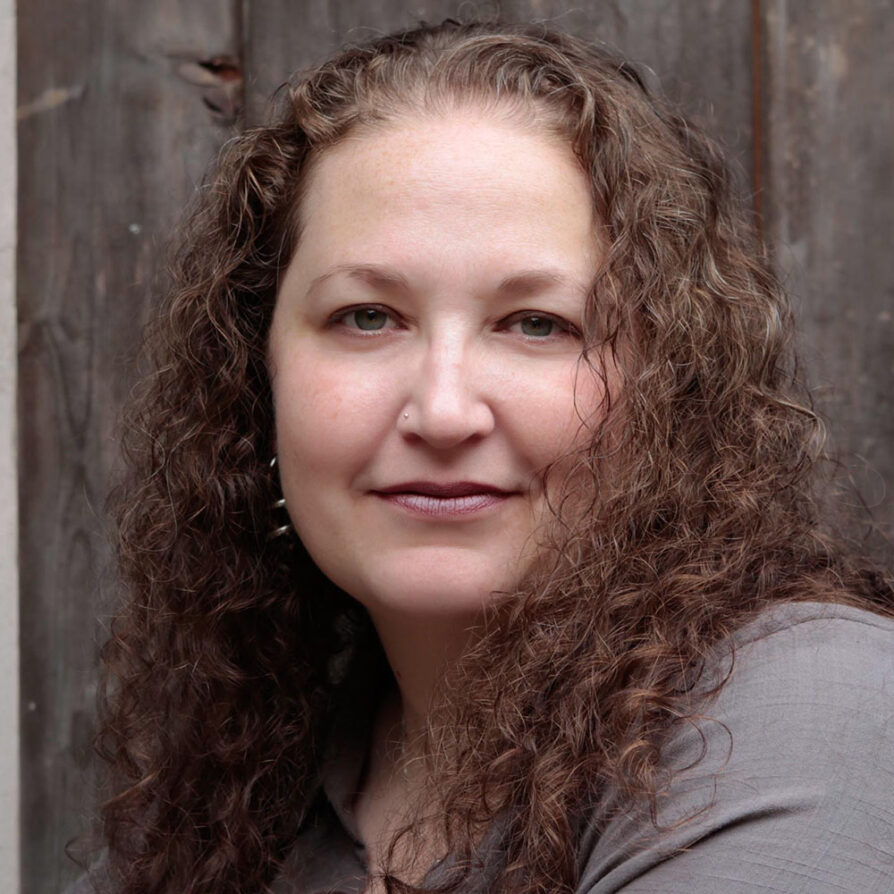Cristina joined CHL in October 2023 with 20 years experience in the fields of mental health and education. Cristina’s experience includes working at two designated agencies in Vermont, an Executive Director position at an early education and childcare program, and working in mental health non-profit organizations in Massachusetts. Cristina aims to create connections and rapport to promote change, reduce stigma associated with mental health, and advocate for youth and families within their home, school, and community settings. Her experience as a clinician in various settings provides a foundation for understanding the strengths and challenges of the systems of care and how to support those navigating through it.
Kirk Postlewaite, MS, LCMHC (he/him)
Kirk is a seasoned public and community health professional with 20 years of experience in program management, clinical work, and community health initiatives. During this time, Kirk has worked with children, families, and adults in Vermont across systems of care and many settings. Most recently, he worked as the Population Health Director at Rutland Regional Medical Center and as the Communications and Development Director at Washington County Mental Health in central Vermont. Kirk’s expertise is focused on creating systems of care that are effective and efficient while remaining person-focused, and he brings a well-rounded clinical perspective to this work.
Kathleen Kilbourne, MEd (she/her)
Kathleen brings to the role of Executive Director a Master’s Degree in Educational Administration, three state license endorsements (Elem. Education, Special Education, and Administration), as well as over twenty-eight years of service in public education in VT. She has served as a classroom teacher, special educator, not-for-profit director, and most recently, as a principal over the past decade. She is a nationally certified Crisis Prevention Institute instructor and consultant who uses restorative practices to support healing and repair relationships. Kathleen also guest lectures at four institutions of higher learning in VT.
Timothy Kahn, MSW, CSOTP
Timothy Kahn, MSW, is a nationally recognized clinician and trainer in the field of sexual offender treatment. He has been practicing in correctional, residential, and outpatient programs for over 40 years. He has written several books that serve as models for the process of treating juveniles who have sexually abused. Mr. Kahn served on the Washington State Licensing Board that developed evaluation and treatment standards and licensing requirements for sex offender treatment providers in Washington State. He is an accomplished trainer and consultant for a variety of agencies in the Pacific Northwest. He has served as an expert witness in numerous cases involving professional sexual misconduct and sexual offenders. He currently maintains a private clinical and consultation practice in Bellevue, Washington, where he evaluates and treats children, adolescents, and adults with sexual behavior problems.
Tyffani Monford, PsyD
Dr. Tyffani Monford Dent is a licensed psychologist. She has served as a consultant and trainer under various federal and state grants. In addition, Dr. Dent has been appointed to various state and county committees focused on those within the juvenile justice system. Dr. Dent provides mental health trainings and has served as a panelist at conferences focused on culturally informed mental health services, gender-responsive treatment, the school-to-prison pipeline and black girls, educating black girls in white spaces, intersectionality and social justice work throughout the United States. She has been featured on local and national news programs addressing the importance of emotional wellness in Black communities, mental health in times of national crisis, and the school-to-prison pipeline’s impact on Black Girls.
Phil Rich, Ed.D., LICSW
Phil Rich presents, trains, and consults nationally and internationally, specializing in work with children with problematic sexual behavior and adolescents and young adults who have engaged in sexually abusive behavior. He holds a doctorate in applied behavioral and organizational studies and a master’s degree in social work, and has been a licensed independent clinical social worker for almost 40 years. Phil served for 13 years as the Clinical Director of a large residential treatment program for children, adolescents, and young adults who have engaged in sexually abusive or sexually troubled behavior, and has been the Program or Clinical Director of six residential or day treatment programs. Phil is the author of four books that address work with sexually abusive youth, as well as multiple contributed chapters and articles, and a series of inter-related workbooks for youth in treatment for sexually problematic behavior, now in their second edition. He is a fellow of the Association for the Treatment of Sexual Abusers, served as the juvenile practice representative on the ATSA Executive Board, and was the founding chair of ATSA’s juvenile practice committee.









